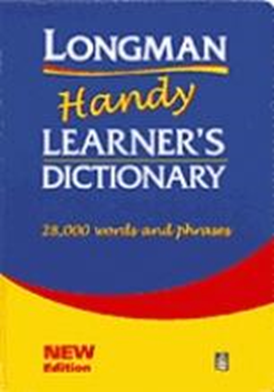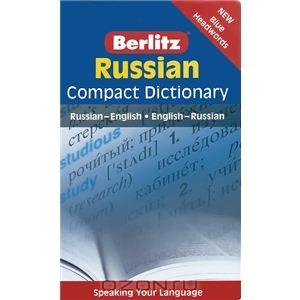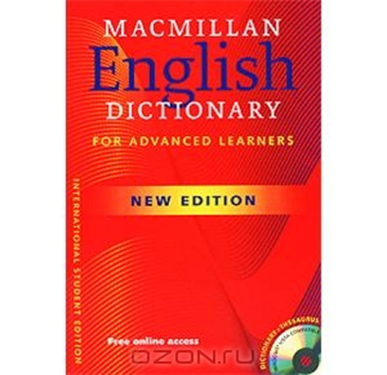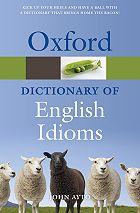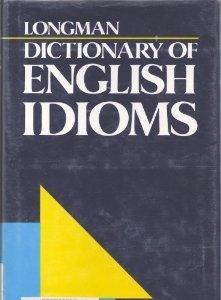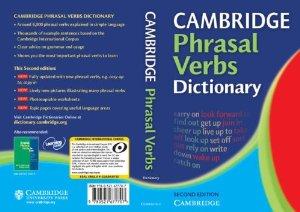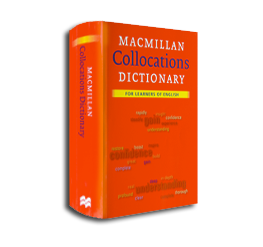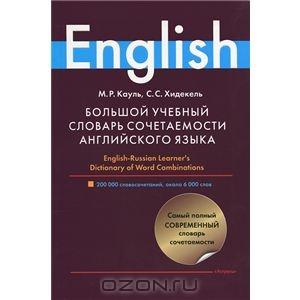
- •Module 1. Changing World Unit 1. Getting to Know You
- •3. Complete the questions to Carly.
- •Vocabulary
- •Improve your study skills
- •1 Answer the questions:
- •2. Using a bilingual dictionary (from New Headway English Course by John and Liz Soars, oup)
- •1. Practice this dialogue in groups. Use your real names.
- •2. Introduce your partner to the people in the class. Ask and answer questions with a partner.
- •1. Find examples of present, past, and future tenses in the texts above.
- •2. Which tenses are the two verb forms in these sentences?
- •3. Choose the correct verb form.
- •Unit 2. Family
- •2.1 Patterns of Family Life
- •Vocabulary
- •1. Families are divided into several types. Match the pictures with 1-3 with the phrases in the box:
- •1. Read the following statements and say if you agree or disagree with them.
- •Improve your study skills
- •3. Read the text again and answer the following questions:
- •Improve your study skills
- •Suggestions for improving your reading skills
- •Vocabulary practice
- •1. Give the English equivalents to the following words and phrases.
- •2. Make up word combinations and use them in sentences or situations of your own.
- •3.Explain in English by matching a and b parts.
- •4. Write out all words and word combinations related to family. Add them to your topical vocabulary. Study the examples.
- •4. Put the verbs in brackets into the appropriate verb form.
- •2. Find a family photograph. Write a short description of it. Read your description to the class. You may start with…. This is a photograph of … when we/they were on holiday/at the party
- •2.2 How Common /Different are Families?
- •Vocabulary practice
- •Improve your study skills
- •2.3 Russian Family: What is it Like?
- •1. In pairs, read the following statements and try to guess if they are true (t) or false (f). Then, read the text quickly to check if you have guessed right.
- •2. Now read the text in detail. Answer all the questions above. What is your family like?
- •Vocabulary practice
- •1. Give the English equivalents to the following words and phrases.
- •Improve your study skills
- •It is interesting to know
- •International Day of Families
- •1. Read the text about the family tree. Pay attention to the words denoting family relations.
- •3. Study your family history. Create your family tree. Make up presentation. Choose the best one.
- •2.4 Family Values
- •4. Go on reading. Mark the statements as true (t) or false (f)
- •5. Read the text once again and point out words and phrases describing values. Fill in the table as in the example.
- •1. How nouns are formed? Noun forms can derived from verbs, adjectives and nouns with suffixes. To learn more visit http://www.Grammar-quizzes.Com/noun-forms.Html
- •2. To learn more visit http://www.Grammar-quizzes.Com/noun-forms.Html. Point out other examples. Make up your own table or a mind map.
- •Vocabulary
- •1. Here is the list of other values. Tick which of them are important to you . Underline noun suffixes.
- •2. What is in your top values? Rank the list of values
- •Improve your study skills
- •Unit 3. Is it easy to be Young?
- •3.1 Generation Gap
- •2. Before reading discuss following.
- •3. Read the title of the text. What do you think the text is about? Scan the text to check if your guesses were correct. The Younger Generation Knows Best
- •4. Read the text once again and mark the following statements as true (t) or false (f):
- •Vocabulary Practice
- •3.2 About Teenagers
- •What is a teenager?
- •Are teenagers a problem?
- •Do teenagers have problems?
- •2. Scan the text and fill in the table
- •3. Read the text once again and complete the sentences.
- •1. Go to Grammar Focus to revise the material about numerals
- •Improve your study skills
- •1. Make up a summary of the text. Use the following phrases
- •3.3 The Problem of Self-Realization
- •1. Scan the text and point out the activities teenagers are engaged in. Working teens
- •Very Informal - for Friends and Family
- •Informal
- •Informal
- •Are Britain’s Teenagers the Worst in Europe?
- •Unit 4. Lifestyle
- •4.1 How to Stay Active and Healthy
- •Vocabulary
- •1. Check the words in the box
- •1.Go to Grammar Focus to revise the material about adverbs.
- •A Generation of Couch Potatoes
- •1.Go to Grammar Focus. Revise the material about modal verbs.
- •2. Work out recommendations how to be active and healthy using the modals.
- •Free Time Activities
- •1. Read the text and match the heading a-s to the paragraphs 1-18. One heading is extra.
- •1.Has your life changed dramatically after you became a University student?
- •1.Study the difference between make and do.
- •2. Make up sentences using active vocabulary.
- •3. Present perfect simple vs simple past
- •Module 2. International Communication Unit 1. Communication in the Globalized World
- •1. Read the following quotations about learning foreign languages. Develop the ideas suggested by the authors.
- •1. Read the definition of the communication phenomenon from Wikipedia. Translate into Russian.
- •2. Try to give your own explanation to the notion of communication. Emphasize the ultimate purpose of communication. You may find useful the following basic ideas:
- •3. Scan the text for general understanding. What it is about? Think of the title to the text.
- •4. Read the text in detail paragraph by paragraph. Find the topic sentence in each paragraph. Pay special attention to the word combinations in bold. Translate them.
- •5.Explain in English by matching a and b parts. Translate
- •6. Match the words from a and b columns to make collocations. Try to reproduce the sentences from the text. Translate into Russian
- •7. Do you know what the acronyms from the text stand for? Explain their meaning. If necessary look up on the Internet. Match the names with the pictures where possible.
- •8. Form the nouns from the verbs below.
- •9. Read the text once again and answer the questions.
- •10. Scan the text and pick up the key words that can help you to express its general idea. Give the summary.
- •1. In the text there are some sentences where Present Continuous is used. Point them out, analyze and translate into Russian.
- •2. Use the Present Continuous Tense to emphasize continual processes taking place in modern world.
- •Improve your study skills
- •Whether we like it or not we all belong to the global community!
- •2. Point out all international words. Check if they have got similar meaning in Russian.
- •3. Read the text below and try to answer the questions of the first paragraph.
- •4. Match the words from the text with their synonyms
- •5. Complete the sentences with the words from the previous exercise.
- •1. In the text there are some sentences where Present Perfect is used. Find them and try to reproduce. Translate.
- •2. Use the Present Perfect Tense (both in passive or active) to emphasize the impact of some actions or events on the present moment.
- •Improve your study skills
- •How to Find Information Online (from http://www.Wikihow.Com/Find-Information-Online
- •1. Summarize what changes happen to the following things from the list given below. You may develop the list using the information from the Internet.. Your own ideas are welcome!
- •2.2 Is Globalization a Benefit or a Problem?
- •Effects of globalization
- •2. Match the words from different columns to make collocations. Reproduce the information from the text where these word combinations are used. Make your own sentences with these collocations.
- •3. Explain in English by matching a and b parts. Use them in the sentences of your own.
- •4. The words given below are the active vocabulary that is necessary to speak about globalization. Study them and make up a chain story with your group mate using these words. For example:
- •5. Scan the text about pros, cons and effects of globalization once again. Say whether you agree with every single point or not. Use the following conversational clichés:
- •Improve your study skills
- •1. Study the information below.
- •2. To learn how to start a blog go to http://startbloggingonline.Com/
- •3. Write a post in your blog where you reveal the necessity of international communication and argue with an anonymous anti-globalist who has made an aggressive comment about your resent message.
- •Module 3. Life and Culture Unit 1. Defining Culture
- •What culture is
- •2. Read the following interpretation of the concept “culture”. It is given in one of the Russian reference books. Compare with the definitions above. Point out differences and similarities.
- •3. Explain in Russian by matching a and b parts.
- •4. Explain in English using the words from 3.
- •5. Using on-line dictionary find out colocations with the word “culture” and “cultural”. Write them down Exchange with your groupmates.
- •6. Mark each statement as t(True) or f (or False). If false, make corrections.
- •1. Look through the definitions of “culture” again and answer the following questions:
- •1.Look at the diagram . Does it reflect the meaning of culture?
- •5. Some cross-cultural aspects of human life are presented in the left part of the table. Fill in the right part, adding information on the point. Discuss.
- •Unit 2. Why is Understanding Culture so Important?
- •6. Read the text once again and answer the questions.
- •2. Find out different types of adjectives in the text and make up 10 sentences with them. Unit 3. What is to be a Man of Culture?
- •2. Read the text for general understanding Find the topic sentence in each paragraph. Pay special attention to the word combinations in bold. Define the main idea. Think of the title to the text.
- •3. Read the text for general understanding. Do you find all the pieces of advice useful?
- •4. Scan the text. Define the main idea. Do you agree with the author about the role of music in raising a person’s cultural awareness?
- •Think for yourself. Don't let others dictate your opinions.
- •1. Explain in English by matching a and b parts. Make up sentences
- •2.Read the text again. Make a short list of recommendations, using the titles of main parts of the text. Prioritize them according to their importance.
- •3. Scan the text and pick up the key words that can help you to express its general idea. Give the summary.
- •4. Find out in the text compound adjectives and make your own sentences with them.
- •2. Make up 10 sentences using different modal verbs describing what should/ought to/must a person learn and know to be a man of culture in modern society.
- •Unit 4. What is Xenophobia?
- •1. Read the text for general understanding . Pay attention to the words in bold?
- •2. Explain in English by matching a and b parts. Make up sentences
- •Two forms of Xenophobia
- •Xenophobia, Racisms, Discrimination, Genocide, Chauvinism, Prejudice
- •5. Mark each statement as t(True) or f (or False). If false, make corrections.
- •Verbs of thinking and opinions
- •4.Make up your own 10 sentences with the state verb, paying special attention to the use of Present Simple as well as Present Continuous.
- •1. Read the text for general understanding. Think of the title to the text.
- •2. Find in the text the English equivalents of the following word combinations:
- •Team work Read and discuss
- •1. Read the message that King of Belgium delivered to the Parliament.
- •In trilingual Belgium, King stresses importance of multilingualism.
- •2. What message would you address to the younger generation if you were the ruler of the country? How would you motivate them to study foreign languages?
- •2. Match the paragraphs with their titles.
- •2. If you know some more exciting facts or amusing statistics about languages, share them with your group mates. Unit 2. Being Multilingual
- •1. Read the text for gist. Grasp the main idea
- •2. Mark each statement as t (True) or f (or False). If false, make corrections.
- •1. Read the summary of following ideas of some people who participated in on-line public opinion polls about the necessity to speak foreign languages. Say what appeals to you the most.
- •Study or research
- •Studying abroad
- •Challenging yourself
- •Project work
- •It is interesting to know…
- •1. Read the text for general understanding. Think of the title to the text.
- •2. Read the text once again. Find the key sentence in each paragraph. Make a summary.
- •3. Mark each statement as t(True) or f (or False). If false, make corrections.
- •1. In the text there are some sentences where degrees of comparison are used. Find them and try to reproduce.
- •2. Use the Degrees of Comparison to emphasize the degree or level of some quality.
- •1. Read the text. Get ready to give a detailed summary. Top Languages to Learn
- •2. Point out main ideas of each paragraph and fill in the table.
- •2. A Game-Playing Date
- •3. A Department Store
- •4. An Archeological Dig
- •5. Driving through a fog
- •Additional reading
- •Have fun
- •To make a long story short...
- •How to Make Money from Translation
- •Грамматический Комментарий Части речи
- •Времена английского глагола. Действительный залог
- •Группа простых (неопределённых) времён The Indefinite Forms The Present Indefinite (Simple) Tense
- •The Past Indefinite (Simple) Tense
- •The Future Indefinite (Simple) Tense
- •Группа продолжающихся времён (The Continuous Forms) The Present Continuous Tense
- •The Past Continuous Tense
- •The Future Continuous Tense
- •Группа совершённых времён.The Perfect Forms. The Present Perfect Tense
- •Страдательный залог
- •Имя существительное (The Noun)
- •Местоимение (The Pronoun)
- •Личные местоимения
- •Притяжательные местоимения
- •Имя числительное (The Numeral)
- •Количественные числительные
- •Порядковые числительные
- •Имя прилагательное (The Adjective)
- •Производные прилагательные
- •Префиксы
- •Суффиксы
- •От основы существительного:
- •От основы глагола:
- •Составные прилагательные
- •Предлоги Предлоги (времени) At / on / in (time)
- •In September/ in October /in the 21 century
- •In 1968/ in the 1970s/ in the early (late) 30s
- •In, at, on (position/ предлоги места) (1)
- •In a cage/ in the sea/ in a queue
- •In, at, on (position) (2)
- •Предложение (The Sentence)
- •Структура английского простого повествовательного распространённого предложения
- •Условные предложения I типа
- •Условные предложения II типа
- •Условные предложения III типа
- •Союзы условных придаточных предложений.
- •Функции инфинитива
- •Слова, заканчивающиеся на –ing
- •Признаки отглагольного существительного:
- •Признаки Причастия I:
- •Признаки герундия:
- •Communication Guide
- •Introductions and greetings
- •Informal Greetings: Arriving
- •Оглавление
1 Answer the questions:
Which dictionaries do you use?
Study the mind map ( From http://elf-english.ru) and the table below. Learn about types of dictionaries
|
Печатные бумажные словари
|
|
|
Электронные словари |
ABBYY Lingvo http://www.lingvo.ru/ |
|
Онлайн-словари
|
http://www.multitran.ru http://www.lingvo-online.ru http://www.merriam-webster.com http://dictionary.cambridge.org http://www.ldoceonline.com/ http://www.oxforddictionaries.com/ http://www.macmillandictionary.com/ http://www.wordreference.com/ http://www.yourdictionary.com/
|
|
Приложения для iphone, Ipad |
https://play.google.com/store/apps/details?id=com.kreatorz.englishidioms.free&hl=ru |
|
Специальные словари |
Словари английского сленга http://onlineslangdictionary.com Словари
идиом http://idioms.thefreedictionary.com,
http://itools.com/tool/cambridge-international-dictionary-of-idioms
Словари фразовых глаголов Словари сочетаемости Словари технических и профессиональных терминов Иллюстрированные словари http://visual.merriam-webster.com,http://www.infovisual.info/,http://www.visuwords.com/
|
2. Using a bilingual dictionary (from New Headway English Course by John and Liz Soars, oup)
a) What are these words? Write noun, verb, adjective, adverb, preposition or past tense.
bread __________ beautiful__________ on ____________
hot ____________ in _______________ came__________
write ___________ never ____________ eat____________
quickly _________ went _____________ letter__________
b) These word have more than one meaning. Write two sentences that show different meanings. Use a dictionary.
|
|
Sentence 1 |
Sentence 2 |
|
book kind can mean flat play train ring |
I’m reading a good book. |
I booked a room at a hotel. |
Communicating in English. Introducing yourself. Meeting people
S
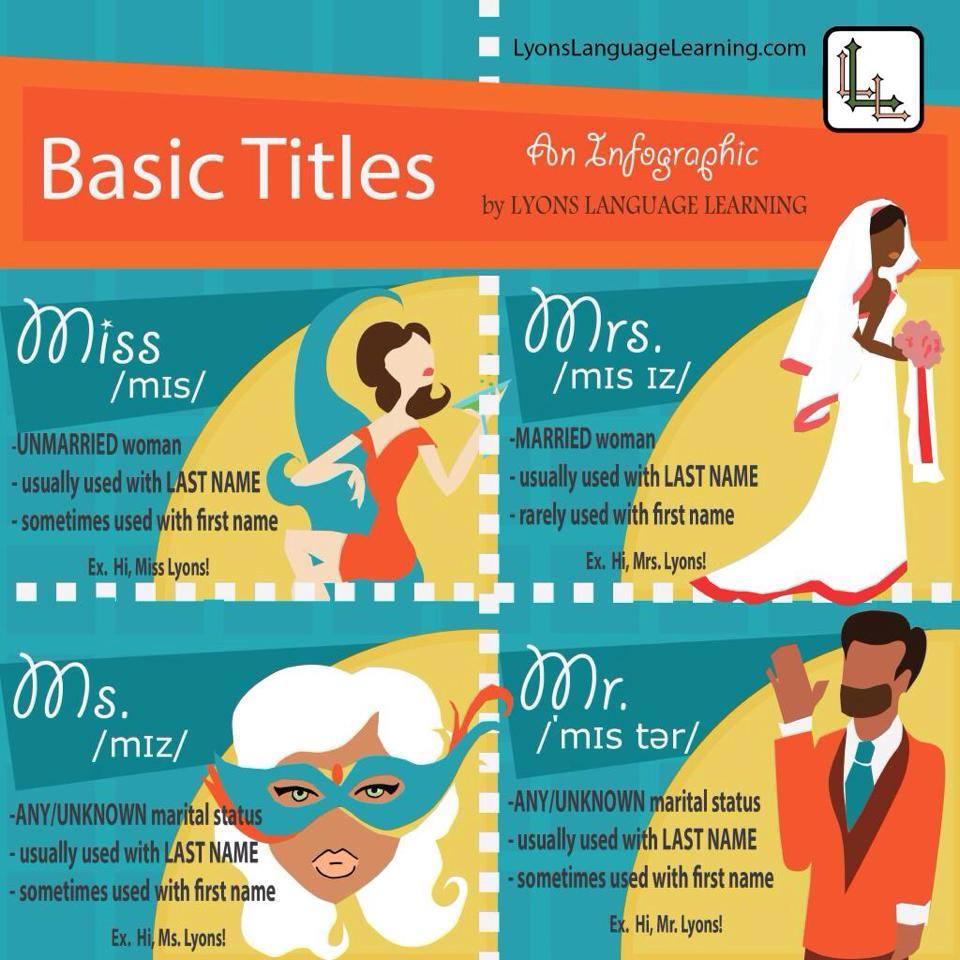 tudy
basic titles, useful phrases and expressions below
tudy
basic titles, useful phrases and expressions below
|
Informal |
|
Hello, I’m |
|
Hi/hey |
|
Everyone call me |
|
People call me |
|
My friends call me |
|
I’m…. But call me |
|
You can call me |
|
Less formal |
|
Hello, my name is …. |
|
Please, call me… |
|
Formal |
|
Please, let me introduce myself |
|
May I introduce myself? |
|
Allow me to introduce myself |
|
Excuse me, my name is … |
2. Go to http://www.youtube.com/watch?v=h-VKSSd9hko
Watch the video from the website http://twominenglish.com/ “How to introduce yourself in English” . Write out some other phrases that are used while introducing yourself. Add them to the table.
Reading
R
 ead
the text to find out what factors determine the use of greetings
and introductions.
ead
the text to find out what factors determine the use of greetings
and introductions.
The language of greetings in English depends mainly on the situation the speakers are in and the relationship they have with the people they're talking to. In official situations (business meetings, official receptions, and conferences) such greetings as “Good morning!”, “Good afternoon!”, and “Good evening!” are used. But people who know each other generally say: Hello! (Hul'lo!) .
After the greetings, British people usually say:
'How 'are you?. The answer usually is: ,Fine, 'thank you! And 'how
are 'you?. Another possibility is 'Not too , bad I'm 'glad to ,say.
When greeting close friends, 'Hi! is quite possible. In fact, "Hi!"
is an abbreviation of "hiya" which in turn is a corruption
of "How are you?". While common enough as a casual,
informal greeting, especially among young people, "Hi"
would certainly not be considered correct use in any formal
situation. It is better to say "Hello!". As is known,


"Hello!"
is comparatively recent in its general use, dating back to the
invention of the telephone. They say Edison, always impatient with
the waste of time or energy, settled on "Hello!".
Remember: the British don't often shake hands when greeting each other. As a matter of fact, they normally shake hands with people when they meet them for the first time or if they meet someone again after a long time. Just as with greetings, the language of introduction is different in different situations too.
In official situations you should use the following expressions:
'Let me intro'duce , Mr . Brown/Kate/ myself, etc.
'May I intro'duce ,Mr ,Brown/Kate/myself, etc.?
The usual response to an introduction is 'How do you 'do? which is in fact a sort of greeting. And in reply the other person says: 'How do you 'do?:
However when introducing friends or people of the same I age you should use the following expressions: This is..., | Meet...:
For example:
Hostess: Helen, meet my friend Kate.
Helen: Hello, Kate. Pleased to meet you.
Kate: Hello, Helen. So am I.
Mind the following:
If you have some knowledge of the person you are being introduced to, you may add: "Hello, Kate. I've heard a lot about you".
If you have already met Kate at some time, you may say: "How are you, Kate?". In reply Kate may say: "Fine/well/pretty well, thanks. And how are 'you?".
Don't forget that men are introduced to women unless they are much older and more senior. Young men are introduced to older men and young girls to older women.
(FromПлюхина, З.А. Англичане говорят так. – М. Инфра-М, 1995. – 208 с.)
Write out all the phrases dealing with greetings and introductions. Fill in the table
|
|
Greetings |
Introductions |
Answers |
|
Informal |
|
|
|
|
Less formal |
|
|
|
|
Formal |
|
|
|
Do you know how to say good-bye?
|
Informal |
Less formal |
Formal |
|
'Hope to 'see you again
|
'Nice .meeting you |
It's been 'nice .meeting you |
|
'See you .later |
|
'Good-,bye! |
|
'See you .then |
| |
|
'See you | ||
|
'Good-,bye! |
Learn more
Read the text, point out how to say good-bye, complete the table with the expressions from the text.
E nglish
speakers like a lot of variety in their everyday language. We have
lots of different expressions for saying simple things.
nglish
speakers like a lot of variety in their everyday language. We have
lots of different expressions for saying simple things.
Formal goodbyes
Goodbye."Goodbye" itself is actually one of the most formal ways to say goodbye to someone. Here are some situations in which "Goodbye" is appropriate:
You've broken up with your partner. You're sad about it. You think that you may never see this person again.
You're angry with a family member. You say this as you slam the door or hang up the phone.
Farewell.This phrase is quite formal and very emotional-sounding. It also seems very final. It's the type of thing that two lovers in a movie might say if they're never going to see each other again. You probably won't use it often in daily life.
Have a good day.Say "Have a good day" (or "Have a nice day," "Have a good evening," or "Have a good night") to someone that you're not very close with, like a coworker that you don't know well, an employee, a customer, or a friend of a friend.
Take care.This phrase is still a little bit formal, but not quite as formal as "Have a good day." Use this when you're not going to see someone again for at least a week.
Casual goodbyes
Most of the time, we use one of these casual phrases when saying goodbye to someone in English.
'Bye!“Bye” is the most common way to say goodbye in English. You can say "'Bye" to anyone you know, from friends to coworkers to clients. It's common to say "'Bye" at the very end of a conversation, even after you've said some of the other phrases in this list.
For example: A: See you later.
B: OK, have a good one.
A: You too. 'Bye.
B: 'Bye.
Bye bye!Little children say "Bye bye", and adults say it when speaking to children. When adults use "Bye bye" with each other, it can either sound childish or sometimes flirtatious.
Later! "Later!" is a cool, casual way to say goodbye. Men often use "Later!" when speaking with each other. You often follow "Later!" with something like "man", "bro", "dude", or "dear". Later, man.
See you later. / Talk to you later."See you later is not quite as casual as "Later!". You can use it with almost anyone. You say "See you later" when you're saying goodbye to someone in person. When you're talking to someone on the phone, you can say "Talk to you later" instead.
Have a good one."Have a good one" means "Have a good day" or "Have a good week." You sound relaxed and friendly when you use it. However, there are people who get annoyed by it because they think that "Have a good day" is better.
So long."So long" isn't very common for actually saying "goodbye" to someone, but you may find it sometimes in news headlines and other places.
All right then. This isn't a very common phrase, but some people in the Southern part of the U.S. use it. It's very casual, relaxed, and colloquial.
(From http://www.phrasemix.com/collections/15-ways-to-say-goodbye-in-english)
Read the texts above once again and discuss the following:
How do the British / the Russians usually greet / say good-bye to each other ? What are the most common forms of greetings?
What are the major differences in the forms of greetings and communicative behavior in different countries (Great Britain, USA, Russia)
Match the opening phrases in A column with the responses in B column.
|
A |
B |
|
|
|
|
|
|
|
|
|
|
|
|
|
|
|
|
|
|
|
|
Speaking



